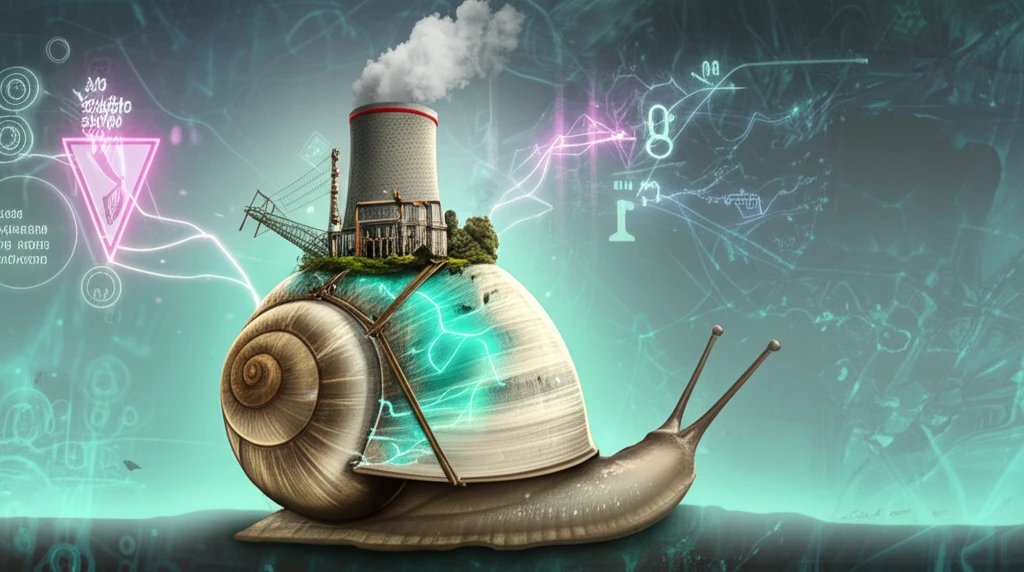
Unlocking Energy Secrets: How Slow Transformations Redefine Efficiency
"New research reveals that manipulating energy systems at an incredibly slow pace can lead to unexpected breakthroughs in efficiency and control."
In the realm of energy and efficiency, the long-held belief has been that quicker processes equate to better outcomes. However, groundbreaking research is challenging this very notion. Scientists are delving into the intricacies of 'slow transformations,' a concept that involves manipulating energy systems at an extraordinarily deliberate pace. This approach is not just about changing the speed; it's about uncovering fundamental insights into how energy behaves and can be controlled under unconventional conditions.
Imagine a world where the pace of change is dictated not by the urgency of immediate results but by the subtle dance of particles within a system. This is the essence of slow transformations. By carefully controlling the energy input and output, researchers are discovering that these processes can lead to more refined and efficient outcomes than their rapid counterparts. The key lies in understanding the nuances of thermodynamics, the science that governs energy transfer and transformations.
This article explores the revolutionary concept of arbitrarily slow, non-quasistatic, isothermal transformations. It unveils how scientists are defying traditional thermodynamic principles by manipulating systems at a near standstill. The implications of this research span various fields, from sustainable energy solutions to advanced technological applications, promising a future where efficiency is redefined by patience and precision.
What Are Arbitrarily Slow Transformations?

At its core, an arbitrarily slow transformation refers to the manipulation of a system’s energy state at a pace that is almost imperceptible. In traditional thermodynamics, processes are often categorized as either reversible (occurring infinitely slowly) or irreversible (occurring at a finite rate). However, the new research explores a unique middle ground, where transformations are slow but not necessarily reversible in the classical sense.
- Defining the Terms: It's crucial to understand the terminology. 'Arbitrarily slow' means the process is slow enough to maintain control but not so slow as to be perfectly reversible. 'Non-quasistatic' indicates that the system is not always in equilibrium during the transformation. 'Isothermal' specifies that the temperature remains constant.
- Challenging the Norm: The research challenges the conventional wisdom that slow, isothermal processes are inherently reversible and efficient.
- The Role of Equilibrium: The key to irreversibility lies in how the system deviates from equilibrium during the transformation.
Redefining the Future of Energy
The exploration of arbitrarily slow transformations opens new avenues for technological innovation and sustainable practices. By challenging traditional assumptions and embracing the complexities of non-equilibrium systems, scientists are paving the way for a future where energy is harnessed and manipulated with unprecedented precision. This research highlights the importance of patience, careful observation, and a willingness to defy conventional wisdom in the pursuit of scientific discovery.
